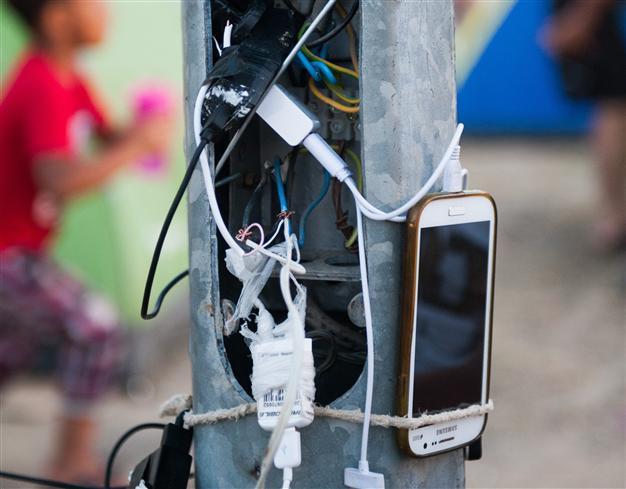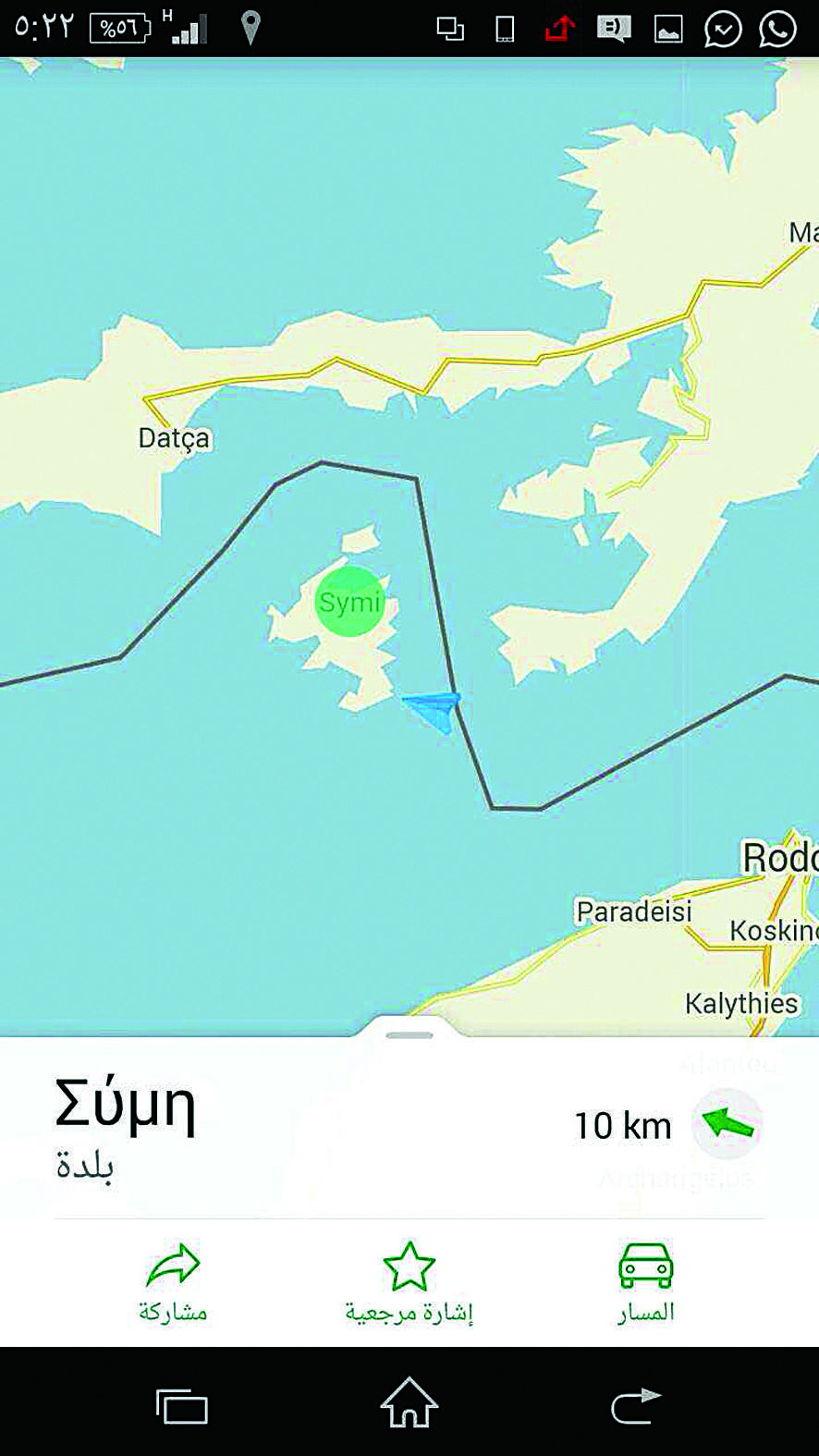Refugees opting for waterproof smart phones on risky Aegean route
Ali Kayalar - ISTANBUL

Photo: Georgios Makkas
A recent close-up by London and Athens-based photographer Georgios Makkas shows that expensive smart phones, particularly ones with waterproof gadgets, mean a lot more than keeping in contact for Aegean refugees who have been risking their lives for a better future away from the risks of war and deadly poverty.Wire photos since the beginning of the migration, orchestrated by human smugglers, display that those who take the risky route on primitive boats care most about their mobiles, which can even save lives. One particular photo taken by Makkas at the Karatepe refugee camp on the Greek island of Lesbos shows a mobile connected to a street light to charge the battery in a dangerous fashion.
“The majority of the Syrian refugees are using smart phones to connect with relatives in Europe, Syria and Turkey, to find their geographical coordination to send it to the coast guards to be rescued, to store precious data and photographs of their relatives and also to document their journey,” Makkas said in response to an emailed question.
 One mobile screenshot that shows a call for help, meant to be indirectly sent to the Greek Coast Guard and pointing to the exact location of a boat filled with people, proves how vital a phone working under wet conditions is.
One mobile screenshot that shows a call for help, meant to be indirectly sent to the Greek Coast Guard and pointing to the exact location of a boat filled with people, proves how vital a phone working under wet conditions is. The proximity of the Greek islands to Turkey allows many refugees to continue using Turkish providers. What is more, smugglers, who promote their deadly tours on social media, are using Turkish networks to promise refugees trips on luxurious vessels only to ultimately produce dinghies.
Mobiles are crucial for migrants for other reasons, such as contacting relatives to let them know they have arrived safely.
For those living in camps in Lebanon, remaining online – usually by making use of an internet black market due to a lack of Wi-Fi – gives them a chance to join training programs on doing small businesses such as translation from or to Arabic.
A March study by Pennsylvania State University found that 86 percent of youth at the Za’Atari Syrian Refugee Camp own mobile handsets, with 83 percent of them also possessing SIM cards.
















